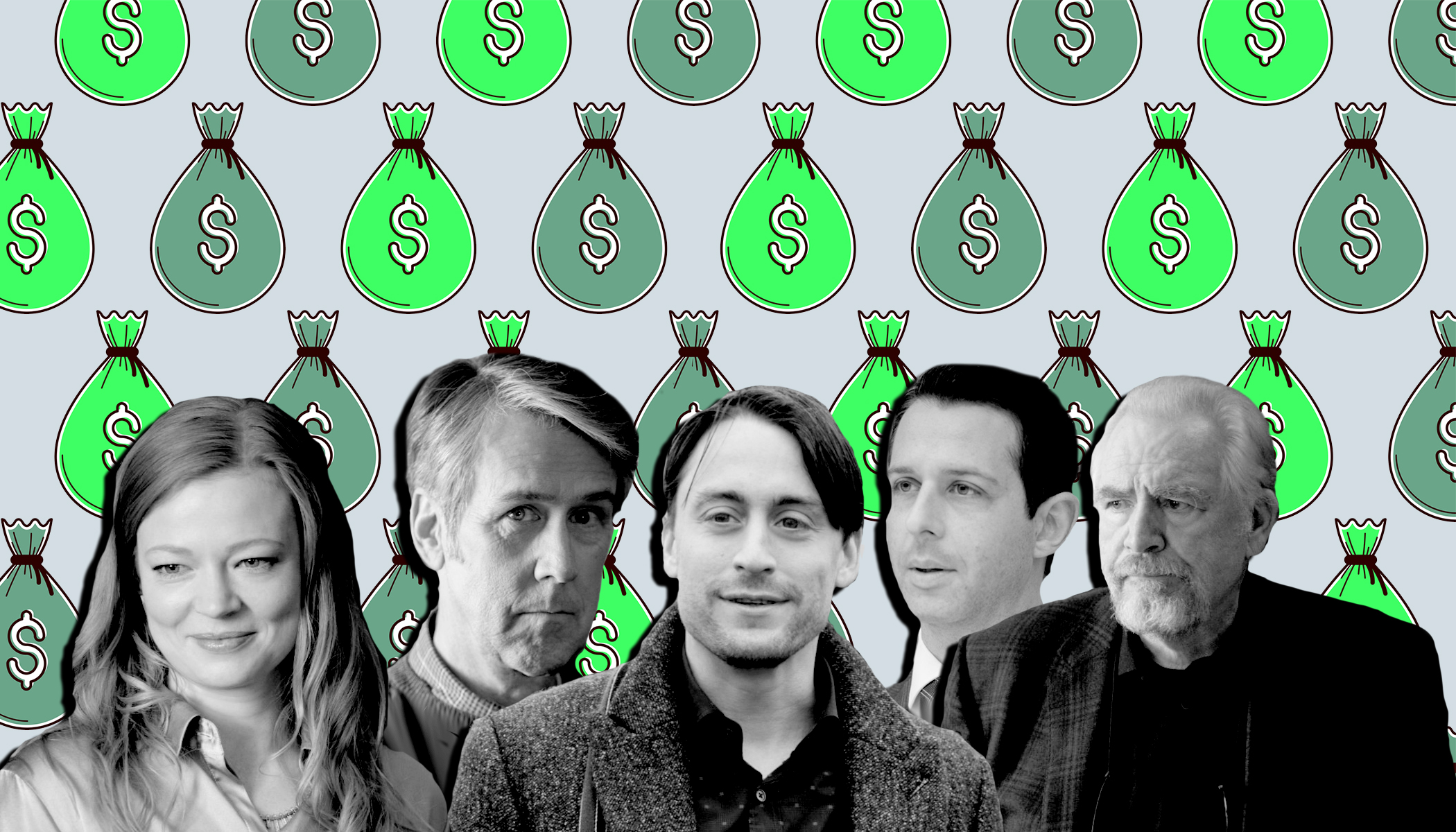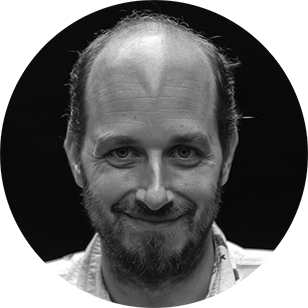The problem with Succession's half-baked class politics
The show might not hate super-rich people as much as you think it does


A free daily email with the biggest news stories of the day – and the best features from TheWeek.com
You are now subscribed
Your newsletter sign-up was successful
Does Succession hate the super-rich? Does it really?
This should be an easy question to answer, given the cruel and petty loathsomeness of the show's protagonists, a reckless gang of vindictive, comic sociopaths. But if you make it past the pilot — in which, among other things, middle-son Roman tears up a million-dollar check just to mock a working class child — you will suddenly realize that you've started to sympathize with these extremely bad people. Over the course of that first season, you will find yourself following Kendall's quest to be his father's son with interest — even rooting for his takeover(s) to succeed — and you'll laugh at Roman's jokes; you will feel for passed-over daughter Siobhan, clearly the smartest of the lot, and you may sympathize with Greg and Tom, the show's most hapless and out-of-their-depth characters. You will probably even catch yourself grudgingly respecting the family patriarch, Logan Roy, for his steely, unsentimental empire-building resolve as he shakes himself out of illness to seize back his kingdom. You will do this because, like it or not, they are the show's protagonists; if you keep watching, there is no alternative.
It is amazing who you can be made to sympathize with, if you are made to watch them suffer. So we see the Roy children suffer, each in their own precisely-crafted hell. Kendall, most obviously, is driven by his desperate insufficiency, a need to please and be loved by his weakness-hating father that ensures that he will never succeed. Roman's infantile humor prevents him from being taken seriously by anyone (from which he retreats into infantile humor), while eldest brother Connor's secret belief in his intellectual superiority can only survive in secret, where it can never be recognized. In the second season, it seems, we will focus on Siobhan, whose gender dooms her to be one of the many not-quite-Roys that orbit the family patriarch, and who has finally given into the hopeless hope that she could be accepted (my prediction is that she will, of course, be frustrated and betrayed by her father). Above them all reigns Logan himself, an abusive father who hates his children for the wealth and ease he's given them, and who — consciously or unconsciously — drives them to betrayal, the only form of love he can respect.
The Week
Escape your echo chamber. Get the facts behind the news, plus analysis from multiple perspectives.

Sign up for The Week's Free Newsletters
From our morning news briefing to a weekly Good News Newsletter, get the best of The Week delivered directly to your inbox.
From our morning news briefing to a weekly Good News Newsletter, get the best of The Week delivered directly to your inbox.
As a result, because each of them is a brilliant portrait of doomed, self-defeating behavior — neurotically recreating the conditions of their own unhappiness — they become too pitiful to hate. Like a reverse King Lear, in fact, we watch the father reject each of his children, in turn, driving them out into the storm (or at least the comedy version of it).
If you've seen creator Jesse Armstrong's Peep Show — a cringingly perfect sitcom about the depths of pathetic masculinity — it's not surprising that this is how he would portray a Rupert Murdoch-esque patriarchy in decline. Armstrong's métier is grotesque men getting in their own way, and sharp-eyed fans of his work with Sam Bain, David Mitchell, and Robert Webb will recognize a variety of riffs on old sketches and scenes, as well as the signature in his construction of dialogue and scene. But since Logan Roy is clearly an amalgam of corporate patriarchs like Murdoch, Robert Maxwell, and Sumner Redstone — with perhaps a bit of the Disney empire folded in — the stakes are a bit higher than the misadventures of Peep Show's Tony Blair-era wastrels. As executive producer Adam McKay has suggested, Succession is asking big questions about society at large: "What happens when this kind of power is handed down through bloodlines [and] how does that affect the world around it?"
This would seem to be an awfully pertinent question in 2019. Yet Succession's sympathy with its characters makes it unequal to an answer, along with its baffling absence of actual power politics. It reminds me, in fact, of the failure of Vice, Adam McKay's strange biopic about Dick Cheney which made the former vice president into a parable for power and ambition by evacuating him of any ideological substance. In place of the free-market zealot and neo-conservative whose project to destroy and reconstruct Iraq flowed out of decades of clearly-articulated principles, McKay portrayed him as an opaque and unknowable cipher. In Succession, we only hear echoes of the world's opinion of the Roy media empire, as when an app-maker, in a moment of drunken honesty, compares them to the Hitler family, reminding Kendall of what he should already know: that the Roy name is as feared and poisonous as Murdoch or Koch. But is she correct to say this? Is the public at large — or their populist stand-in, a slightly less grouchy version of a Bernie Sanders-style senator — right to view the Roys as a force for evil? The show seems uninterested in interrogating the question.
Indeed, for a show about a media mogul whose cable news network (and backdoor connections to the president) make him the equivalent of the creator of Fox News, we see almost nothing of the concrete conservative project that animates so much of our real-life billionaire class. That Logan has an attachment to news that goes beyond its profitability is something his children can't seem to understand, but it's not clear the show wants us to either. Because it's so much more interested in the comedy of the cluelessness super-rich — insulated from all consequences by their grotesque wealth, they are incapable of learning or self-consciousness — it insulates the audience from the real world as well. How and why Logan has acquired the kind of political influence he has is never explained, referenced but left in the out-of-focus background. There are some lovely tossed-off jokes — like the cable news chyron "Gender Fluid Illegals May Be Entering the Country ‘Twice'" — but if you blink, you'll miss them; the focus is elsewhere.
A free daily email with the biggest news stories of the day – and the best features from TheWeek.com
In short, because the show's politics only exist at the level of the suggestive vignette, they never really cohere. In the second season premiere, for example, we see a montage of servants prepare and serve an epic lobster banquet to the family until Logan commands that it all be thrown away, uneaten; the smell of dead raccoons in a chimney has made the food distasteful to him, so he replaces it with pizza — that no one eats — and then proceeds to screw the contractor that he blames for the raccoons out of his relatively miniscule fee. As a brief and understated window into class, it's a vivid and compelling scene. And yet, compared to these sparse and economical sketches of class — which imply more than they reveal — the inner lives of the Roy family are painted in sumptuous rococo detail, so rich and elaborate and baroque that you get lost in their dramas, overwhelmed by the unquestionable artistry.
All of which is to say: let's not mistake this show for what it isn't. It's a show about a decadent billionaire family that falls in love with its subject, and it carries the audience along with it on the strength of the writing. But by making them pathetic — by wringing pathos out of their suffering and comedy from their clueless ineptitude — it redeems them from all of the utterly true critiques it might otherwise seem to be making of the super-rich. Could anyone be evil if they are this lost, unhappy, and stupid? It seems strange to answer "no" during the Trump presidency, and yet that's where it feels like Succession is landing.
Aaron Bady is a founding editor at Popula. He was an editor at The New Inquiry and his writing has appeared in The New Yorker, The New Republic, The Nation, Pacific Standard, The Los Angeles Review of Books, and elsewhere. He lives in Oakland, California.
-
 Switzerland could vote to cap its population
Switzerland could vote to cap its populationUnder the Radar Swiss People’s Party proposes referendum on radical anti-immigration measure to limit residents to 10 million
-
 Political cartoons for February 15
Political cartoons for February 15Cartoons Sunday's political cartoons include political ventriloquism, Europe in the middle, and more
-
 The broken water companies failing England and Wales
The broken water companies failing England and WalesExplainer With rising bills, deteriorating river health and a lack of investment, regulators face an uphill battle to stabilise the industry
-
 The billionaires’ wealth tax: a catastrophe for California?
The billionaires’ wealth tax: a catastrophe for California?Talking Point Peter Thiel and Larry Page preparing to change state residency
-
 Bari Weiss’ ‘60 Minutes’ scandal is about more than one report
Bari Weiss’ ‘60 Minutes’ scandal is about more than one reportIN THE SPOTLIGHT By blocking an approved segment on a controversial prison holding US deportees in El Salvador, the editor-in-chief of CBS News has become the main story
-
 Has Zohran Mamdani shown the Democrats how to win again?
Has Zohran Mamdani shown the Democrats how to win again?Today’s Big Question New York City mayoral election touted as victory for left-wing populists but moderate centrist wins elsewhere present more complex path for Democratic Party
-
 Millions turn out for anti-Trump ‘No Kings’ rallies
Millions turn out for anti-Trump ‘No Kings’ ralliesSpeed Read An estimated 7 million people participated, 2 million more than at the first ‘No Kings’ protest in June
-
 Ghislaine Maxwell: angling for a Trump pardon
Ghislaine Maxwell: angling for a Trump pardonTalking Point Convicted sex trafficker's testimony could shed new light on president's links to Jeffrey Epstein
-
 The last words and final moments of 40 presidents
The last words and final moments of 40 presidentsThe Explainer Some are eloquent quotes worthy of the holders of the highest office in the nation, and others... aren't
-
 The JFK files: the truth at last?
The JFK files: the truth at last?In The Spotlight More than 64,000 previously classified documents relating the 1963 assassination of John F. Kennedy have been released by the Trump administration
-
 'Seriously, not literally': how should the world take Donald Trump?
'Seriously, not literally': how should the world take Donald Trump?Today's big question White House rhetoric and reality look likely to become increasingly blurred
